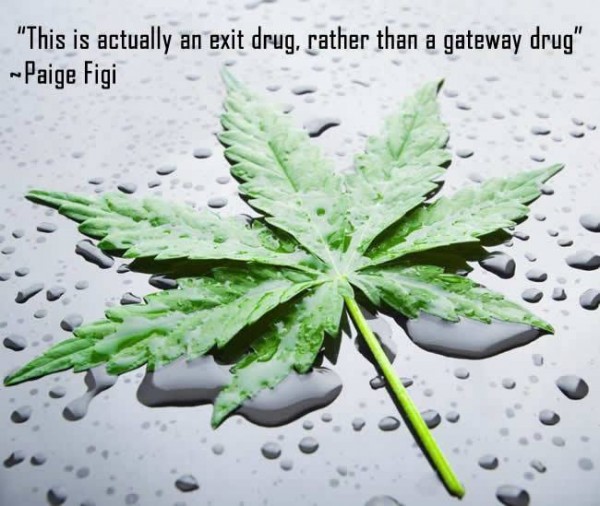Many people erroneously believe that cannabis is a “gateway drug” that leads to users moving on to harder and harder drugs. The reality, like many myths relating to cannabis, is closer to the opposite of this. As this article will examine, cannabis can serve as an ‘exit drug’ to help people overcome addictions to actually harmful substances, in particular alcohol, synthetics and opioids.
In New Zealand, there is a “synthetic cannabis” epidemic underway. A couple of recent deaths in Christchurch were believed to have been caused by the substances, and the total number of deaths in New Zealand this year attributed to them is approaching 50. This is rightly a public health crisis, and is increasingly being understood as such.
The substances being sold as synthetic cannabis generally have nothing to do with cannabis – they are mostly unknown psychoactives that generate some kind of buzz when smoked. No-one’s really sure where they come from or what’s in them, they’re just sold through shady contacts – often at tinny houses when someone was looking for natural cannabis – and end up killing people in the streets.
It doesn’t matter that these substances aren’t really much like cannabis, because they fill a market niche that would otherwise be filled by cannabis. If a person doesn’t like to drink alcohol, for whatever reason, the major alternative is some form of cannabis. If cannabis is not available, because prohibition has made it impossible to supply, then “synthetic cannabis” might have to do, because it will frequently be available through the same channels that a person would try to access natural cannabis.
For the many thousands of Kiwis believed to be addicted to synthetic cannabinoids, and for the hundreds of thousands who are at risk of encountering some synnies from one of the infamous “bad batches” that kill people from time to time, legal cannabis could serve as an exit drug. With legal cannabis in place, even if only at the medicinal level, a synthetic cannabinoid addict could be weaned off the synnies with a replacement medicinal cannabis regimen.
In America, there is an opioid epidemic underway. Opioid overdoses were believed to comprise 49,000 of the 72,000 drug overdose deaths in America in 2017. This contrasts with about 10,000 such deaths at the turn of the century. This represents several times more deaths than even the infamous American homicide rate – clearly a crisis of such proportions that extraordinary actions must now be considered.
Cannabis has shown immense promise as an exit drug from opioid addiction. Science Daily links a report from the University of British Colombia that found significant evidence to suggest that cannabis can help in the case of alcoholism and opiate addiction. There are already clinics in operation in Los Angeles where cannabis is in a clinical program of rehabilitation from heroin and alcohol misuse.
A study in the Journal of the American Medical Association found that rates of opioid use are lower in American states that have legalised medicinal cannabis, which suggests that individuals who use opiates are themselves happy to wean themselves off by using cannabis, if only there are given the opportunity. The JAMA study found that “States with medical cannabis laws had a 24.8% lower mean annual opioid overdose mortality rate compared with states without medical cannabis laws.”
A report by Time Magazine found that rates of death by opioid overdose had quadrupled from the turn of the century, and that states which had legalised medicinal cannabis had saved hundreds of millions of dollars from alleviating some amount of opioid abuse. Even if a patient does not stop taking opiates completely, it is possible that a synergistic effect from the cannabis can potentiate the opiates they do take, meaning that they can take less for the same painkiller effect.
All this means that cannabis prohibition is effectively killing people, by preventing those addicted to alcohol and opiates from accessing a potential exit drug, and thereby forcing them to remain addicted to the substance. Despite the apparent moralistic intent behind cannabis prohibition, we can safely suggest that the spirit of the law was not that it should kill alcoholics and opioid addicts.
Cannabis law reform is necessary so that medicinal cannabis can be applied as an exit drug to people who are addicted to, or dependent on, more harmful substances. This will have the effect of substituting a substance that heals for substances that harm, and thereby preventing suffering.
*
This article is an excerpt from The Case For Cannabis Law Reform, compiled by Vince McLeod and due for release by VJM Publishing in the summer of 2018/19.

